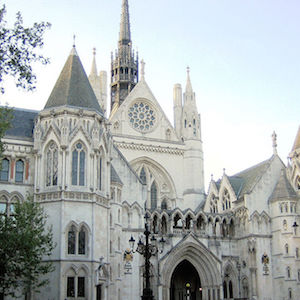
On Nov. 28, the England and Wales Court of Appeal ruled that Antwerp, Belgium, sightholder Pluczenik must pay $3.3 million to its former broker W Nagel Ltd. (WN), after it agreed with a lower court that Pluczenik improperly breached the two parties’ twenty-year-old oral agreement. (Pluczenik plans to appeal; see update below.)
The court case involves two prominent names in the diamond industry and covers events that stretch back decades. Among the witnesses for Pluczenik: Former De Beers CEO Philippe Mellier.
WN’s nonagenarian founder, Willie Nagel, testified that in 1994 he and Isaac Pluczenik struck a deal at the Intercontinental Hotel in London. They agreed that WN would lower its commission rate to 0.5 percent from 1 percent, in exchange for the Pluczenik company always using W Nagel as its broker as long as it had a sight.
Isaac Pluczenik died in 1997, and control of the business passed to his son Chaim, who wasn’t present when the original deal was struck. In 2003, when De Beers introduced Supplier of Choice, it decreed clients would no longer need brokers, though it encouraged them to keep using them. (Most did.)
In 2005, the Pluczenik company set up a factory in Botswana supplied locally by De Beers. Nagel testified that he agreed not to take commissions on these sales—as well as those on a subsequent factory in Namibia—because the amounts discussed were small and the venture was risky.
In November 2013, De Beers officially moved its sales to Botswana. That summer, Pluczenik told Nagel it would no longer use it as it broker, as it had for 45 years. That sparked the current lawsuit.
One recurring problem: There were few written accounts of these long-ago events. In recent years, the Nagel brokerage began keeping detailed records of each sight, but in his 2017 ruling, Justice Andrew Popplewell said that the Pluczenik company didn’t offer much documentation. “There [was] a disinclination on the part of Chaim Pluczenik to document anything, because as he explained in his evidence he heeded his father’s advice that ‘whatever you write, you can’t take back,’ ” he said.
One disputed point in the original agreement proved crucial. Nagel testified that Pluczenik had committed to remain its client as long as it had a De Beers sight. The Pluczenik company argued it had simply agreed not to hire another broker—which meant that it wasn’t breaking the agreement, as it had decided to forgo brokers altogether.
Popplewell ultimately sided with WN, arguing that, when the deal was struck, no one foresaw that sightholders would one day not be required to use brokers.
That issue was raised again in the recent appeal, and the panel agreed with the original ruling.
“No one gave evidence which supported the case that Pluczenik is now seeking to advance—that the gist of the agreement was a commitment not to appoint another broker,” wrote Lord Judge George Leggatt, who signed the appeals court opinion. “The very fact that no one would have had in mind the possibility that De Beers would cease to require a broker makes it inherently improbable that the agreement was to retain Nagel for so long as Pluczenik required a broker and much more likely that it was to retain Nagel for so long as Pluczenik had a sight.”
The appeals panel also rejected an argument put forward by Pluczenik’s attorneys—that when De Beers said sightholders no longer needed brokers, that changed circumstances enough to invalidate the original agreement.
“[It is] commonplace for circumstances to arise which the parties to a contract did not foresee when the contract was made,” wrote Leggatt. “When this happens, it does not follow that the contract ceases to be binding or ceases to apply.”
The damages were calculated using a lengthy formulation based on Nagel’s typical commission plus damages for breach of contract. Pluczenik contested the final award as well, but Leggatt found that amount was “assessed by the judge in a manner which was generous—and perhaps even unduly generous—to Pluczenik.”
UPDATE: Pluczenik’s Belgian attorney, Francine Wachsstock, says the U.K. verdict will be appealed to the country’s Supreme Court, and that Pluczinek still has an action pending against Nagel for 20 million Euros in Belgium court for “professional mistakes.”
Top: The England and Wales Court of Appeal (image via: Wikipedia)
- Subscribe to the JCK News Daily
- Subscribe to the JCK Special Report
- Follow JCK on Instagram: @jckmagazine
- Follow JCK on X: @jckmagazine
- Follow JCK on Facebook: @jckmagazine